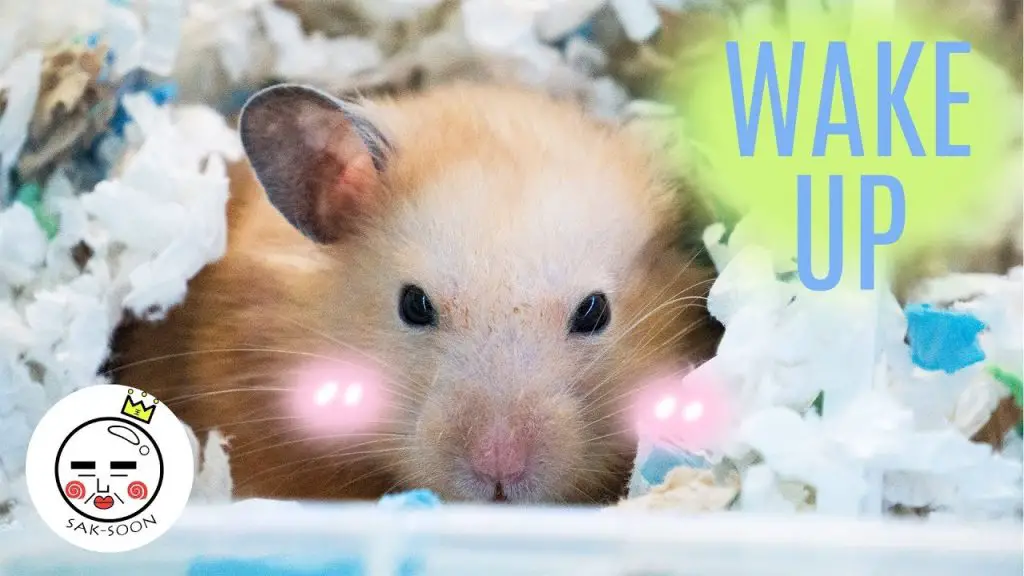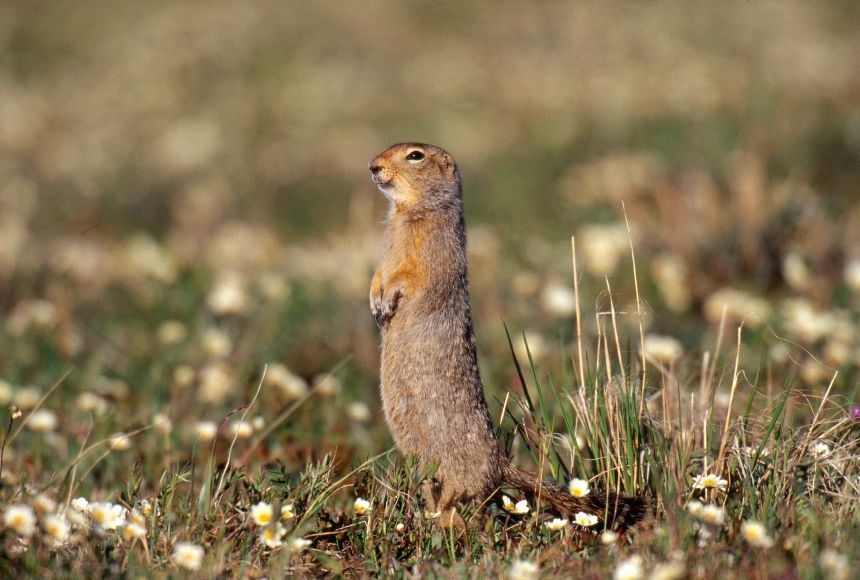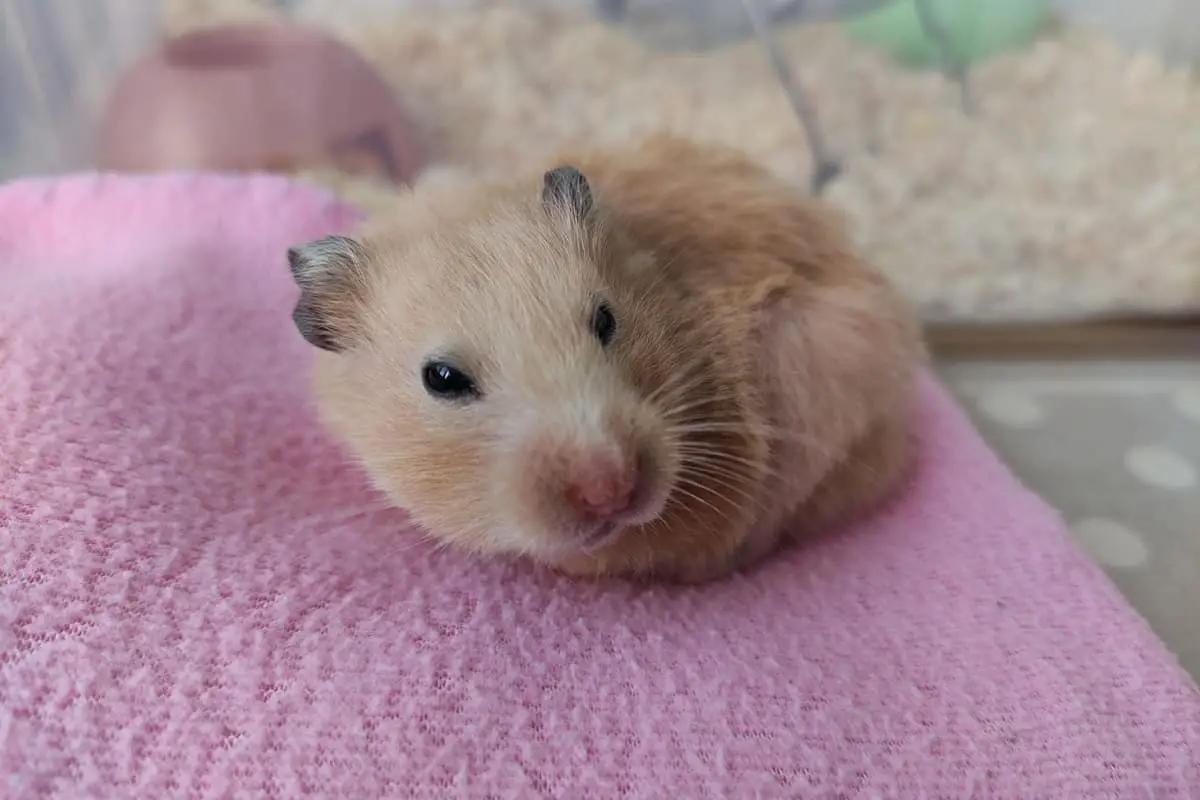Why Does My Hamster Wake Up In The Day?
A hamster wakes up in the day due to its natural circadian rhythm, which is similar to that of humans. Hamsters are crepuscular animals, meaning they are most active during dawn and dusk.
This is believed to be an evolutionary adaptation that allows them to find food while avoiding predators. Hamsters have poor eyesight and rely heavily on their sense of smell to navigate their environment. During the day, their sense of smell is less effective, making it safer for them to sleep.
Additionally, hamsters are burrowing animals and tend to sleep during the day to avoid the high temperatures and bright light. Providing a comfortable and dark sleeping environment for your hamster is vital to ensure their overall well-being.

**Understanding The Natural Circadian Rhythm Of Hamsters**
Understanding the natural circadian rhythm of hamsters is crucial to comprehending why they wake up during the day. Unveiling the reason behind this behavior sheds light on our furry friends’ biological clock.
Understanding The Natural Circadian Rhythm Of Hamsters
Hamsters, those adorable little creatures, have their own unique sleep-wake cycle governed by their natural circadian rhythm. Understanding this rhythm is essential for hamster owners to ensure they provide the best environment for their furry friends. Let’s delve deeper into the fascinating world of hamster sleep patterns and how light impacts their daily routines.
Hamster’S Natural Sleep-Wake Cycle
Hamsters are crepuscular animals, meaning they are most active during dawn and dusk. While they may not be nocturnal, like many believe, their sleep-wake cycle does differ from that of humans. Here’s a breakdown of a typical hamster’s sleep habits:
- Hamsters sleep for around 14-16 hours a day, depending on the species.
- They tend to sleep during the day and are more active during the night.
- Their sleep patterns can vary slightly from one hamster to another.
- Some hamsters may have a more pronounced nocturnal behavior, while others adjust their activity levels to match their owners’ routines.
How Lighting Affects Their Sleep Patterns
Light plays a vital role in regulating a hamster’s sleep patterns. Here’s how it impacts them:
- Natural lighting: Hamsters are sensitive to natural light cues, which help regulate their internal clocks. The amount of light they receive during the day affects their sleep at night.
- Darkness: Hamsters need a dark environment to feel secure and get quality sleep. Exposing them to bright lights during their sleep time can disrupt their restfulness.
- Artificial light: Artificial lighting, such as room lights or nearby electronics, can confuse a hamster’s internal clock, leading to erratic sleep patterns and potential sleep disturbances.
The Influence Of Natural And Artificial Light
Understanding the impact of both natural and artificial light on your hamster’s well-being is crucial. Consider these points:
- Natural light exposure: Allow your hamster to experience natural daylight for a few hours each day, as it closely mimics their natural environment. This will help regulate their sleep-wake cycle and overall health.
- Providing darkness: Make sure your hamster’s sleeping area is situated in a dimly lit or completely dark space, especially during their designated sleep time. Block out any sources of light that might disturb their much-needed rest.
- Minimizing artificial light: Keep in mind that bright artificial lights, such as ceiling lights or bright screens, can interfere with your hamster’s internal clock. Avoid exposing them to excessive artificial light during their sleep hours to maintain a healthy sleep routine.
Understanding and respecting your hamster’s natural circadian rhythm is vital for their overall well-being. By providing an environment that aligns with their sleep-wake cycle and minimizing the disruption of artificial light, you are ensuring a happy and healthy hamster.
**Exploring The Nocturnal Nature Of Hamsters**
Discover the fascinating nocturnal habits of hamsters and explore the reason why your furry friend may wake up during the day. Uncover the secrets behind their unique sleep patterns and gain a deeper understanding of your hamster’s behavior.
Exploring The Nocturnal Nature Of Hamsters
Hamsters, those adorable little creatures that scurry around in their cages, have a fascinating nocturnal nature. Their behavior and unique adaptations for night-time activities make them intriguing pets to observe. This article dives into the origins of hamsters as nocturnal animals, their behavior and adaptations for night-time activities, and the advantages and disadvantages of being nocturnal for these furry little creatures.
The Origins Of Hamsters As Nocturnal Animals:
- Hamsters are naturally nocturnal animals, meaning they are most active during the night and sleep during the day.
- This behavior is believed to have originated from their ancestors, who lived in burrows and tunnels, providing them with safety and protection from predators.
- Being active during the night allows hamsters to take advantage of the relative quiet and minimize the risk of encountering danger.
Behavior And Adaptations For Night-Time Activities:
- Hamsters have evolved to navigate the darkness with great ease, as they possess exceptional night vision.
- Their large eyes and specialized eye structure allow them to see well in low light conditions, enabling them to search for food and explore their surroundings efficiently.
- Hamsters also have excellent hearing and a keen sense of smell, which further aids them in finding food sources and detecting potential threats in the dark.
- These remarkable sensory adaptations contribute to their ability to thrive in a nocturnal lifestyle.
Advantages And Disadvantages Of Being Nocturnal For Hamsters:
- Advantages:
- Protection from predators: Being active at night provides hamsters with a reduced risk of encountering predators as many potential threats are less active during this time.
- Resource availability: Nocturnal behavior allows hamsters to capitalize on resources, such as food and water, that may be more abundant during the night.
- Greater activity levels: Being naturally inclined to be active at night means hamsters tend to have higher energy levels during those hours.
- Disadvantages:
- Limited interaction: Hamsters’ nocturnal behavior can pose challenges for pet owners who are more active during the day, as they may miss the opportunity to bond and play with their hamster during its most active hours.
- Disruptive sleep patterns: If the hamster’s sleep schedule is not aligned with its owner’s, noise and activity may disrupt the pet’s sleep during the day, leading to potential behavioral issues.
Hamsters’ nocturnal nature is deeply rooted in their evolutionary history. Their behavior and unique adaptations for night-time activities allow them to navigate the dark with ease and find resources while minimizing exposure to predators. While this lifestyle has advantages in terms of protection and resource availability, it can also present some challenges for pet owners who may have different activity patterns.
Understanding and appreciating the nocturnal nature of hamsters can help create a harmonious environment for these fascinating creatures.
**Unveiling The Surprising Reason Behind Hamsters Waking Up In The Day**
Discover the surprising reason behind why hamsters wake up in the day, shedding light on this common behavior of these adorable pets. Find out the fascinating explanation behind their diurnal nature.
Unveiling The Surprising Reason Behind Hamsters Waking Up In The Day
Hamsters are fascinating creatures known for their nocturnal behavior, often seen active and lively during the night. However, it may come as a surprise to many pet owners when their furry friends decide to wake up during the day. To shed light on this phenomenon, let’s explore the factors that may disrupt a hamster’s sleep schedule and understand how human interaction impacts their sleep patterns and daily routines.
Additionally, we’ll discuss how to create an optimal sleeping environment for your hamster to ensure a restful slumber.
Factors That May Disrupt The Hamster’S Sleep Schedule:
- Natural instincts: Hamsters, being nocturnal animals by nature, have evolved to be more active during the night. However, some hamsters may deviate from this pattern due to various factors.
- Light exposure: Exposure to excessive light during the day can result in a shift in a hamster’s sleep schedule. The bright natural light or artificial sources of light in the surrounding environment can disrupt their internal clock.
- Noisy surroundings: A noisy environment can keep your hamster awake during the day. Loud sounds or disturbances in their vicinity can cause stress and make it challenging for them to fall asleep and stay asleep.
The Impact Of Human Interaction On Their Sleep Patterns:
- Handling and playtime: Interacting with your hamster during the day can stimulate them and make them more active. The excitement and engagement during playtime can interrupt their natural sleep cycle, causing them to stay awake during the day.
- Cage location: Placing your hamster’s cage in a high-traffic area, where there is constant human activity, can impact their sleep patterns. The continuous movement and noise around them can prevent them from having a peaceful rest.
How To Create An Optimal Sleeping Environment For Your Hamster:
- Provide a quiet and dark space: Ensure your hamster’s cage is kept in an area where they can have a peaceful and undisturbed sleep. A quiet room, away from loud noises, will encourage them to stay in tune with their nocturnal instincts.
- Control light exposure: Covering the cage partially during the day can help regulate light exposure and create a more sleep-friendly environment for your hamster. This mimics the darkness of their natural habitat and encourages them to sleep during the day.
- Stick to a consistent routine: Establishing a regular feeding and playtime schedule can help regulate your hamster’s sleep patterns. Consistency is key, as it allows them to anticipate and adjust to their designated sleep and wake times.
By understanding the reasons behind your hamster’s daytime wakefulness and implementing strategies to create an optimal sleeping environment, you can ensure your furry friend gets the rest they need. Remember, a well-rested hamster is a happy and healthy hamster!

Frequently Asked Questions Of Why Does My Hamster Wake Up In The Day? This Is The Reason Why!
Why Does My Hamster Wake Up In The Day?
Hamsters wake up in the day because they are naturally diurnal creatures, meaning they are active during daylight hours.
Why Is My Hamster Not Sleeping During The Day?
Your hamster may not be sleeping during the day due to its natural nocturnal behavior.
Why Is My Hamster Awake In The Afternoon?
Hamsters are naturally active in the afternoon because they are nocturnal creatures.
Why Do Hamsters Sleep During The Day?
Hamsters sleep during the day because they are nocturnal animals that are more active at night.
Conclusion
To sum it up, the reason why your hamster wakes up during the day is primarily due to its natural instincts and lifestyle. Hamsters are nocturnal animals, which means they are most active during the nighttime hours. This is an evolutionary adaptation that allows them to avoid predators in the wild and search for food more efficiently.
However, domesticated hamsters may adjust their sleep patterns slightly to align with their owners’ schedules. It’s important to provide your pet hamster with a suitable and comfortable environment, including a quiet and dark sleeping area during the day. Additionally, ensuring they have enough mental and physical stimulation during their active hours can help prevent boredom and excessive daytime sleeping.
Understanding and accommodating your hamster’s natural behavior will contribute to a healthier and happier pet. So, next time you see your hamster awake during the day, remember that it’s just following its instincts.







